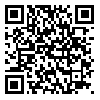Volume 6, Issue 4 (OCTOBER 2007)
Payesh 2007, 6(4): 0-0 |
Back to browse issues page
Download citation:
BibTeX | RIS | EndNote | Medlars | ProCite | Reference Manager | RefWorks
Send citation to:



BibTeX | RIS | EndNote | Medlars | ProCite | Reference Manager | RefWorks
Send citation to:
Sheibani S.. Whither Kinship?-New Assisted Reproduction Technology Practices, Authoritative Knowledge and Relatedness – case studies from Iran. Payesh 2007; 6 (4)
URL: http://payeshjournal.ir/article-1-680-en.html
URL: http://payeshjournal.ir/article-1-680-en.html
Abstract: (6450 Views)
Religious leaders in Iran have shown remarkable open-mindedness and flexibility towards embracing innovations in science and technology, including the use of modern reproductive technologies. New ‘fatwas’ and laws are being (respectively) decreed and passed to legitimise the use of technology and to adapt to change within an Islamic framework. New reproductive technologies, especially infertility treatment, are among recent technologies flourishing in Iran and which require Islamic interpretations to make their use possible.
In this paper I examine the factors which determine the use of new reproductive technologies for infertile couples. I suggest that in this respect religion plays a predominant role and currently remains the ultimate authoritative source of reference. The interpretation of the divine law to use new procreative technologies is in turn driven and defined by the high demand for such technology. The race between re-interpreting the religious rules in order to keep pace with the technological innovations, the high demand for infertility treatment, and the ever-increasing range of options offered by new reproductive technologies, leads to situations whereby rapid decisions have to be made and the resourcefulness of all concerned in finding legitimate solutions often come to the rescue. I then suggest that the emerging relationships and new forms of kinship resulting from the combination of the practices described above may give rise to new situations which could exceed the realm of religion alone and require other moral, ethical and legal frameworks as well as their Islamic interpretations. It is only when the ‘new babies’ come of age that problems arising from this lag might emerge.
Data used in this paper is drawn from a larger study in Yazd, research in clinics and infertility centres in Tehran, interviews with donors and recipients of gamete, and with medical doctors, obstetricians and counsellors.
In this paper I examine the factors which determine the use of new reproductive technologies for infertile couples. I suggest that in this respect religion plays a predominant role and currently remains the ultimate authoritative source of reference. The interpretation of the divine law to use new procreative technologies is in turn driven and defined by the high demand for such technology. The race between re-interpreting the religious rules in order to keep pace with the technological innovations, the high demand for infertility treatment, and the ever-increasing range of options offered by new reproductive technologies, leads to situations whereby rapid decisions have to be made and the resourcefulness of all concerned in finding legitimate solutions often come to the rescue. I then suggest that the emerging relationships and new forms of kinship resulting from the combination of the practices described above may give rise to new situations which could exceed the realm of religion alone and require other moral, ethical and legal frameworks as well as their Islamic interpretations. It is only when the ‘new babies’ come of age that problems arising from this lag might emerge.
Data used in this paper is drawn from a larger study in Yazd, research in clinics and infertility centres in Tehran, interviews with donors and recipients of gamete, and with medical doctors, obstetricians and counsellors.
type of study: Descriptive |
Accepted: 2018/11/28 | Published: 2007/10/15
Accepted: 2018/11/28 | Published: 2007/10/15
| Rights and Permissions | |
 |
This work is licensed under a Creative Commons Attribution-NonCommercial 4.0 International License. |





